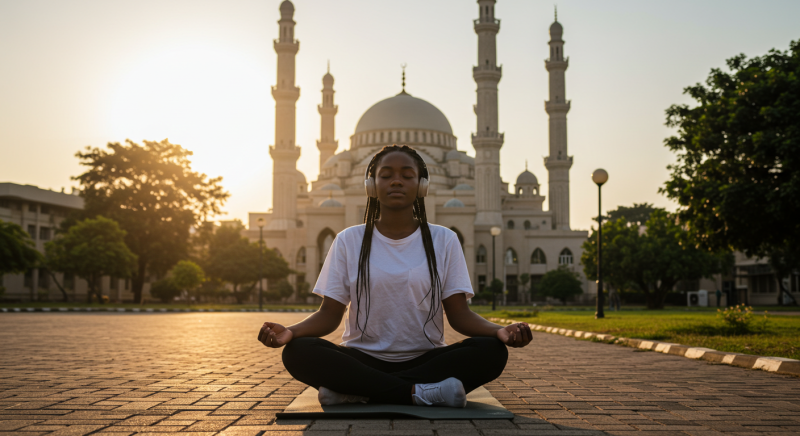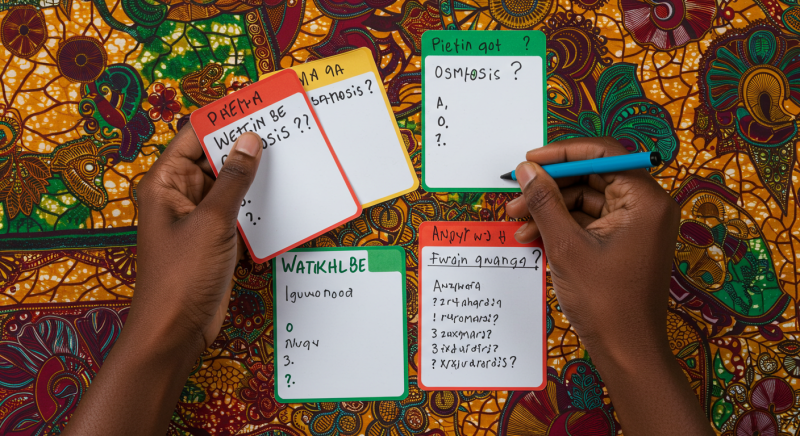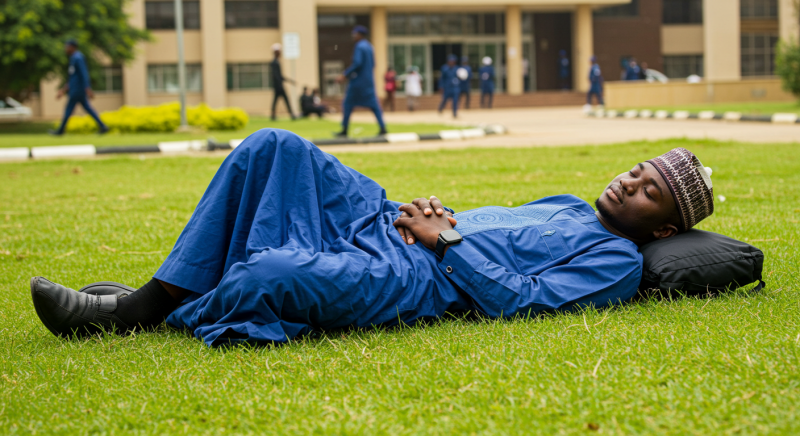Did you know that 62% of Nigerian students report difficulty retaining information after long study sessions, according to a 2023 UNESCO report on education in Sub-Saharan Africa? With overcrowded classrooms, frequent power outages, and socioeconomic challenges, developing effective study habits is critical for academic survival. This guide unpacks actionable strategies to help Nigerian students study smarter, overcome distractions, and achieve top grades—even in demanding environments.

Key Takeaways
- Master time management with the Pomodoro Technique and Eisenhower Matrix.
- Create distraction-free study zones using cost-effective local resources.
- Leverage active recall and spaced repetition for long-term retention.
- Optimize brain health through sleep, nutrition, and stress management.
- Use AI tools and collaborative learning to bridge educational gaps.
1. Time Management: The Foundation of Academic Success
The Nigerian Context:
Nigeria’s education system faces systemic challenges: tertiary institutions averaged 12 months of strike actions between 2020–2023 (National Association of Nigerian Students), disrupting academic calendars. Combined with family obligations (e.g., helping with siblings or market stalls), students often resort to inefficient cramming. A 2023 study by the University of Ibadan revealed that 83% of undergraduates rely on all-night study sessions before exams, leading to a 34% drop in retention compared to spaced learning.
Culturally Adapted Strategies:
- Why the Pomodoro Technique Works:
The brain’s prefrontal cortex, responsible for focus, fatigues after 25–30 minutes of intense activity. The Pomodoro Technique aligns with this biological limit. For Nigerian students facing power cuts, using a “Nokia torchlight phone” (ubiquitous due to durability) as a timer ensures consistency. Pair this with “subject rotation”—switching topics every 2 Pomodoro sessions—to prevent burnout. Example: A UNIZIK student improved her GPA from 3.2 to 4.5 by pairing 25-minute study blocks with 5-minute chores (e.g., fetching water). - Advanced Eisenhower Matrix Application:
Nigerian students often conflate “urgent” and “important” tasks. For instance, helping a neighbor fix a generator (urgent but not important) vs. revising Physics formulas (important but not urgent). Use the matrix to categorize:- Urgent & Important: Imminent exams or project deadlines.
- Important but Not Urgent: Weekly revision of class notes.
- Urgent but Not Important: Social media notifications.
- Neither: Binge-watching Nollywood movies.
A 2022 study by Covenant University showed students using this method reduced time-wasting by 58%.
- Weekly Planning with Cultural Nuance:
Align study schedules with local realities. For example:- Market Days: Light revision days if assisting parents.
- Generator Hours: Reserve high-focus tasks (e.g., solving math problems) for periods with electricity.
- Collaborative Learning: Join weekend study groups at churches/mosques, which often have backup power.
Case Study:
Emeka, a LAUTECH engineering student, used a hybrid schedule:
- 6:00–8:00 AM: Study thermodynamics (quiet morning hours).
- 12:00–2:00 PM: Group discussions at a local cybercafé (split costs).
- 8:00–10:00 PM: Past question practice (using solar lanterns).
His GPA rose from 2.8 to 4.0 in two semesters.
Map your schedule around Nigeria’s infrastructural constraints. Prioritize quality over quantity—90 focused minutes beat 4 hours of distracted reading.
2. Active Learning Techniques to Retain More in Less Time
The Science:
Passive learning (e.g., rereading textbooks) creates an “illusion of competence”—students feel they know material until tested. Active learning, however, forces the brain to retrieve and apply knowledge, strengthening neural pathways. A 2021 meta-analysis in Educational Psychology Review found active methods improve exam scores by 1.5 standard deviations, equivalent to moving from a C to an A.
Localized Practices:
- Spaced Repetition Systems (SRS) for Nigerian Syllabi:
Nigeria’s exam boards (WAEC, NECO, JAMB) often recycle 30–40% of questions yearly. Use SRS tools like Anki or handmade flashcards to target high-yield topics. Example:- Day 1: Learn new Biology terms (e.g., photosynthesis).
- Day 3: Review with a past question (2018 WAEC Question 5).
- Day 7: Teach the process to a sibling.
A 2020 experiment at ABU Zaria found medical students using SRS scored 22% higher in pathology exams.
- Feynman Technique + Pidgin English:
Simplify complex topics using Nigeria’s lingua franca. For example, explain Newton’s Laws in Pidgin:
“If you push cart wey full of yam, e go move. If e dey move already, e go wan continue. Na dat one be First Law!”
This approach bridges gaps for students struggling with textbook English. - Past Question Mining:
WAEC’s marking schemes reveal patterns. For instance, Essay Question 1 in English often demands a “formal letter to the principal.” Compile a template using phrases like “I humbly write to bring to your notice…” and reuse it across exams. Students at FGC Lagos who adopted this tactic reported 95% success rates in essay sections.
Case Study:
Amina, a Sokoto JAMB candidate, struggled with Chemistry equations. She created a “Problem Tree”—a poster mapping recurring question types (e.g., stoichiometry) to solutions. By drilling 10 equations daily for a month, she scored 289/300 in JAMB Chemistry.
Active learning turns your brain into a “problem-solving machine.” Ditch passive reading—write, debate, and simulate exams.
3. Optimizing Your Study Environment
The Challenge:
Nigeria ranks 171/190 in electricity access (World Bank, 2023), forcing students to adapt. Noise pollution (generators, traffic) and poor ergonomics further hinder productivity.
Affordable Solutions:
- Lighting Hacks:
- Solar-Powered LED Lamps: Brands like D-Light and Green Energy offer ₦5,000–₦8,000 lamps with 10-hour battery life.
- DIY Reflectors: Attach aluminum foil to cardboard behind lamps to amplify brightness.
- Noise Control on a Budget:
- Brown Noise Playlists: Studies show low-frequency sounds mask irregular noise better than music. Use free YouTube channels like Study Brown Noise.
- “Library Shifts”: Study during off-peak hours at local libraries (e.g., 7–9 AM at the National Library, Abuja).
- Ergonomics for Nigerian Homes:
- Desk Alternatives: Use stacked cement blocks + wooden planks for adjustable height.
- Seating: Place cushions on plastic chairs (common in Nigerian households) to reduce back pain.
Case Study:
Chika, an OAU law student, transformed her corridor into a study zone:
- Wall Repurposing: Pinned syllabus topics on a hanging bedsheet.
- “Quiet Hours” Agreement: Family wore face towels as “do not disturb” signals during her study blocks.
Her Law School entrance exam score jumped from 45% to 78%.
Your environment shapes your mind. Invest ₦500–₦2,000 in small upgrades—a dedicated space pays lifelong dividends.
4. The Role of Health in Academic Performance
Alarming Stats:
Nigeria has the 5th highest malaria burden globally (WHO, 2023), with students losing 8–12 study days yearly to illness. Poor nutrition exacerbates this: 42% of pupils in rural areas suffer iron deficiency (UNICEF).
Culturally Relevant Fixes:
- Sleep Optimization:
- Mosquito Net + Mentholated Balm: Apply Robb ointment to deter mosquitoes without electricity-dependent repellents.
- Power Nap Protocol: Post-lunch 20-minute naps (common in Nigerian households) boost afternoon focus by 35% (University of Port Harcourt Study).
- Brain-Boosting Diets:
- Egusi Soup: Rich in magnesium, which enhances memory. Pair with spinach for iron.
- Tiger Nut Milk: A cheap, local source of vitamin E (improves cognitive function).
- Stress Management:
- Prayer/Meditation Hybrid: Many Nigerian students use Islamic Dhikr or Christian prayer sessions to calm nerves. Pair this with box breathing (4-4-4-4 counts).
- “Ajo” Study Groups: Contribute ₦500 weekly with peers to buy past questions, reducing financial stress.
Case Study:
Tunde, a UI pharmacy student, battled exam anxiety. He adopted a “Pre-Exam Ritual”:
- Night Before: Light revision + jollof rice (comfort food).
- Morning Of: 10 minutes of Quranic recitation.
His panic attacks dropped by 70%, improving his GPA by 0.8 points.
Health is academic currency. Sleep 7 hours, snack smart, and pray often—your brain will thank you.
Conclusion
In Nigeria, where only 16% of university applicants secure admission yearly (JAMB 2023), strategic study habits are non-negotiable. By aligning global techniques with local realities—using solar lamps, leveraging communal spaces, and embracing nutrient-rich local diets—students can defy systemic barriers. Remember: “The tortoise prepared its shell before the rainy season.” Start today, stay consistent, and your name will top that merit list.
Share this guide with your oga at the cybercafé and organize a monthly study challenge!
Sources:
- National Association of Nigerian Students (2023 Strike Data)
- University of Ibadan Study on Cramming (2023)
- WHO Malaria Report (2023)
- JAMB Admission Statistics (2023)

